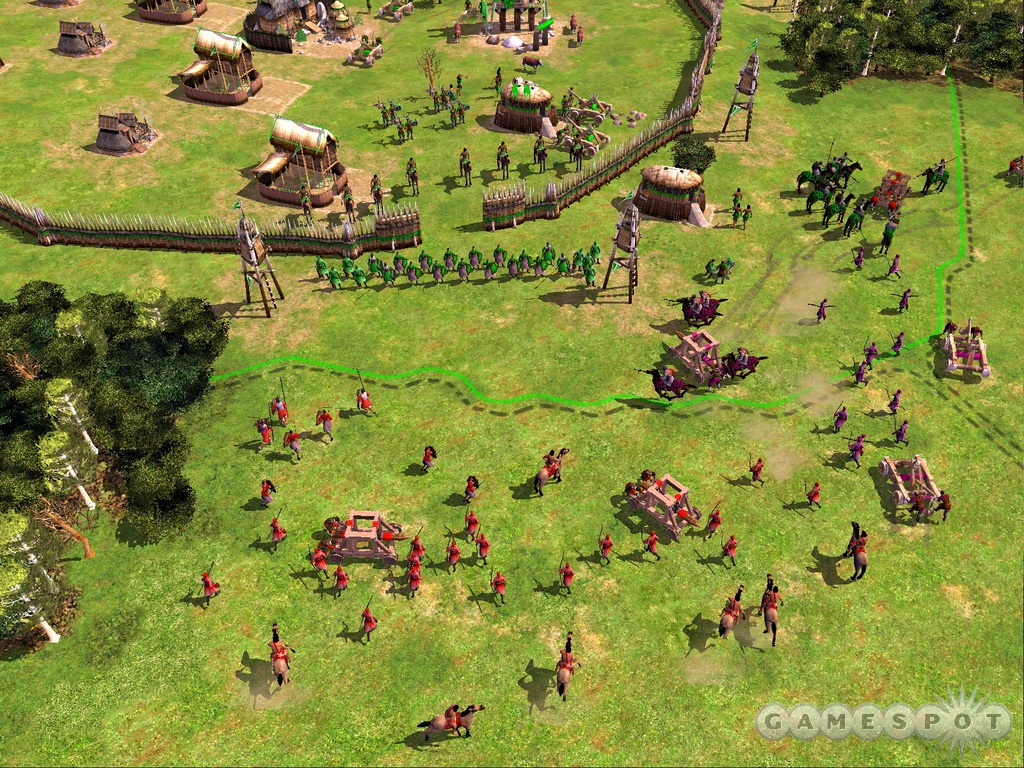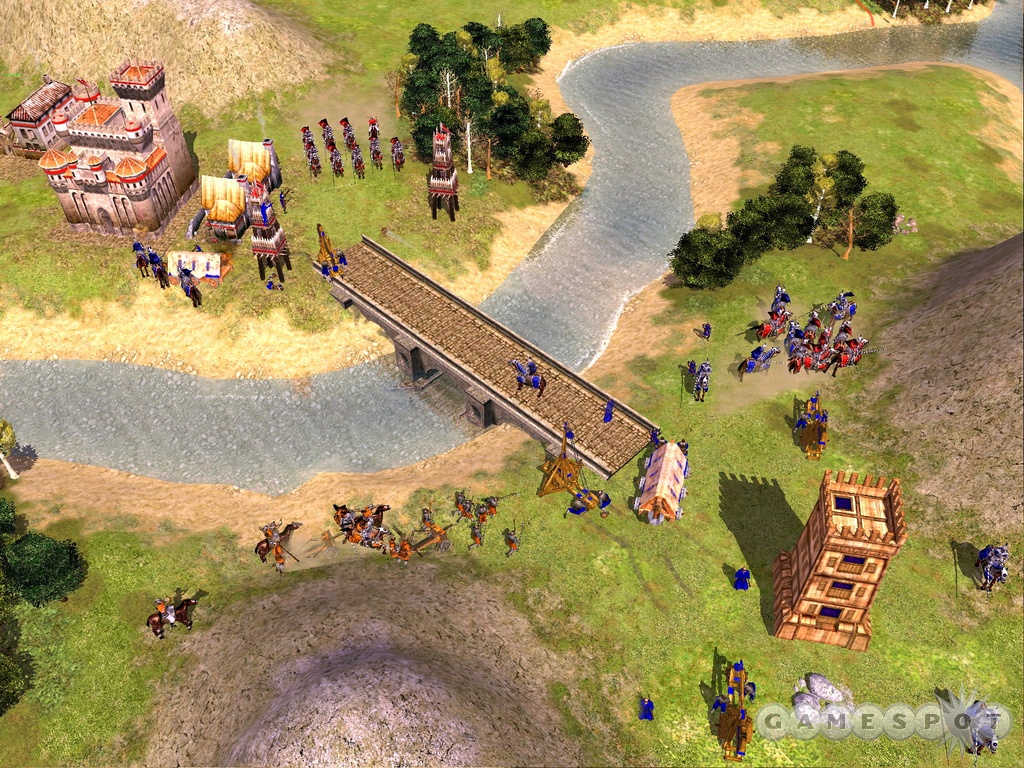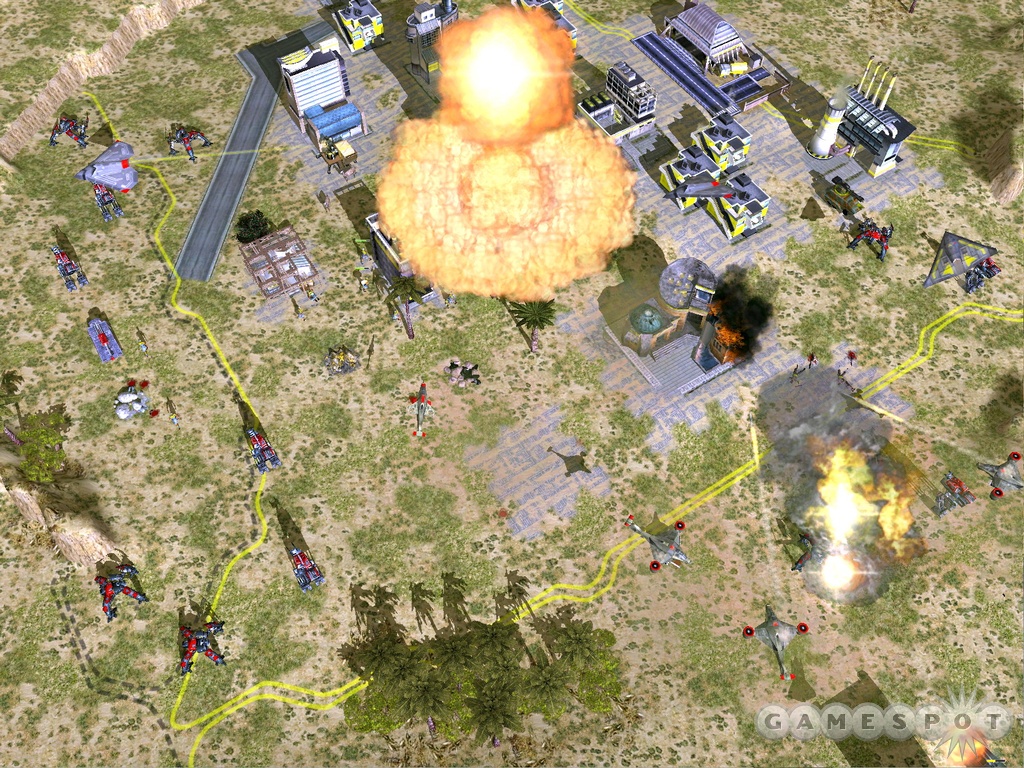Empire Earth II Q&A - Final Thoughts
Empire Earth II finished development last week, and we caught up with Mad Doc CEO Ian Davis to get his final thoughts on the game.
Empire Earth II is currently in the process of getting duplicated and boxed. And with work on this massive real-time strategy game complete, we caught up with Ian Davis, CEO of developer Mad Doc Software and creative director on the game, to get his final thoughts on the project. Like its predecessor, Empire Earth II will let you guide a fledgling civilization from the dawn of time to the sci-fi future, and you'll battle with rival civilizations in the quest for more land and resources. Empire Earth II will ship to stores next week. 
GameSpot: Now that the game is wrapping up, can you share your general thoughts on the game? What was the original vision for Empire Earth II, and how much of it survived in the end?
Ian Davis: The original vision was to expand on the core concept of the Empire Earth franchise by taking the biggest, broadest real-time strategy game and adding depth and manageability. I think we achieved that and then some.
GS: What were some of the challenges in coming up with a sequel to such an expansive game as Empire Earth? Obviously, any sequel would have to conform to the original, especially in terms of having so many historical epochs, but how much freedom did you have to go your own way?
ID: Well, you do need to maintain the original vision of epic conquest, but we had a free hand to evolve it through gameplay enhancements such as the territories, the citizen manager, diplomacy, and dozens of other improvements.
GS: Were there any specific challenges in balancing the civilizations while at the same time trying to keep them unique? By the way, what are your favorite civilizations, and why?
ID: Empire Earth II is a huge game, and the big challenge was to have lots of civilizations, balance them, make them different, and still have them run on a PC! It was quite a challenge.
Personally, I love the Japanese in the modern ages (nice bonuses with planes), the Egyptians in the early ages (building wonders gets you tech points), and the Turks in the middle ages (cheaper defenses).
GS: This is a big game with a lot of content. How does the game cater to newcomers and real-time strategy veterans alike? What's been done to make sure the game is easy to approach and yet hard to master?

ID: Virtually all of our new features have the goal of "easy to approach and yet hard to master" in mind. The citizen manager, for example, makes it much easier to control your economy when you have a big empire. But, in turn, it gives the late game more strategic options because what you do with your economy still counts! The picture-in-picture lets you see more of your empire, which makes it easier to know what's going on, but it also lets you do more advanced attacks and you can coordinate offense and defense in a more sophisticated way.
GS: Does Empire Earth II feature any sort of quick-play modes where players can play through an entire game in an hour or so? This is especially important to players who only have an hour or two each evening to play. On the flip side, if you wanted to play an epic game, from the earliest epoch to the last epoch, how long would it take?
ID: I can tell by this question that you will love our setup options. We have two things in particular that address this. First, you can change the basic game pace. This isn't the simulation speed, but rather the relative pacing of things, such as build time, build cost, movement speed, etc. There are three presets (not surprisingly called slow, normal, and fast), plus you can customize dozens of options individually. A fast-paced game could go through all the epochs in 45 minutes if you really hustle, and a slow-paced game could take over four hours to get through all 15 epochs (plus you can adjust to any level with the custom options).
But just as interesting is the "quick start" option, which has several levels of prebuilt bases and units that you can start with on any map. The host chooses none, small, medium, or large starting forces, and then each player chooses from one of a dozen starting "packages." This lets you skip the 10 to 15 minutes of start-up that often plays out just the same if you so desire.
GS: Just how tough is the artificial intelligence? It doesn't cheat, correct? So how does it scale on different difficulty levels? On harder levels, is the AI far more aggressive, or is it simply a matter of it being able to manage more simultaneously, or both?
ID: It's really both. There are some functions the harder AI uses that the easier doesn't. The noncheating AI is actually so efficient that on the three easiest settings we have to handicap it so beginning players can keep up.
GS: How do you feel multiplayer turned out? What steps were taken, if any, to prevent some of the standard approaches to multiplayer matches, such as the early tank rush? How about if someone drops out early (which can ruin a match)? Does the AI automatically step into those kinds of situations?
ID: Empire Earth II's multiplayer is simply the best ever found in a real-time strategy game. Besides the different pacing and quick starts, we have an enhanced diplomacy model that centers around the new default mode of "sole survivor" in which only one player can win. This means that if a few allied players beat everyone else on the map, the alliance is automatically split and it's a fight for survival! This means you always know that either your allies will all screw you or you'll screw them. Sole survivor enables a rich diplomacy system in which you can make normal or timed alliances ("we'll just be friends for 10 minutes"), shared line of sight or not, border permissions, resource rights, and so on. To specifically counter-rushing, we put in an option for an initial cease fire with anywhere from 2 to 15 minutes. And, finally, you can set it up either to have the AI take over, or not, as you see fit!

GS: Are there any postrelease plans to support the game? Are there any ideas for a potential expansion pack?
ID: We will absolutely continue to support the game. And I'm not at liberty to say anything about an expansion pack.
GS: So what's next for the folks at Mad Doc Software?
ID: I can't officially say yet, but it's really, really, really cool.
GS: Thanks, Ian.
Got a news tip or want to contact us directly? Email news@gamespot.com
Join the conversation